When an audience member gives a dollar bill to a drag performer in Oklahoma City, they bow ever so slightly in a kind of reverent curtsy when handing it over. Here at the County Line nightclub on a recent Saturday night, I watch it happen again and again. Maybe it’s just how they do things here. Or maybe this sign of respect is not just an empty gesture.
I am sipping my Diet Coke and watching the show with a dozen new friends I have met over the course of the last two days. Officially, I came to town to speak at a community awards ceremony and do some promotion for my new book. But that was planned before the traumatic death of a nonbinary child, Nex Benedict, only miles away. Oklahoma City is now the latest epicenter of queer heartache and righteous anger.
The community here is startling in their resilience to constant threats, whether in the form of epithets yelled on the street or repressive legislation from the State Capitol. The willful ignorance and hatred and evangelical damnations rumble through the roads of Oklahoma like a wagon train.
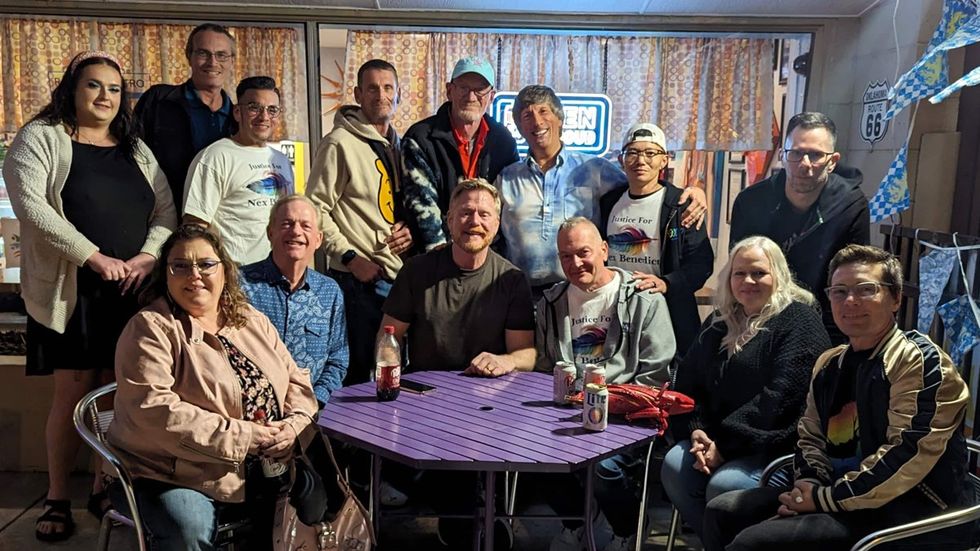
The show tonight is hosted by the local chapter of the Gay Rodeo Association. Oklahoma loves a rodeo. They know a thing or two about roping and riding and whatnot. Not all of the cowboy hats and tight Wrangler jeans crowding the bar are performative. The local rodeo chapter has not only existed longer than Gay Pride here, it funded the first Pride celebration in Oklahoma City.
Everyone has turned out tonight in support of the crowning of Miss Gay Rodeo, an honor that will be bestowed on Ryan Ochsner, who performs as Ry’Lee Hilton. Ryan is beloved as much for his HIV prevention work as for his lip-synching skills. He works for a local health center doing HIV testing and prevention outreach.
“We help people access treatment medication,” Ryan tells me in his dressing room, touching up his makeup as the sound system blares country songs for performers onstage. “From the time someone tests HIV positive, we get them the first pill in their mouth within one hour.”
I ask Ryan about the inhospitality of his state toward LGBTQ people and if it gives him second thoughts about living here. He fixes his painted eyes on me with great intention. “I love Oklahoma,” he says deliberately. “I am not going anywhere.”
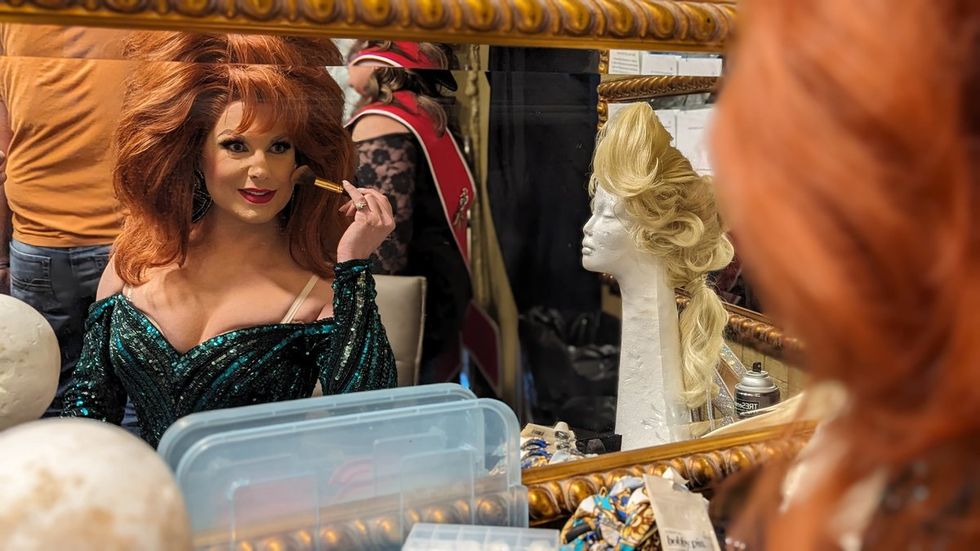
The host of the show is drag queen Shantel Mandalay, who has become internet infamous for all the wrong reasons. Dr. Shane Murnan, who plays Shantel, was forced to resign his job as an elementary school principal because he entertains as a drag queen. The school knew of his act when they hired him – a member of the job selection committee once served as a judge for a drag contest in which Shane competed – but a tabloid story and the subsequent internet outrage from conservatives forced the issue. The state superintendent of schools railed against Shane, saying he should be fired and implied that he showed up at school in drag, which was never the case. The school district finally told Shane that it was too expensive to keep him safe from the barrage of threats Shane received on a daily basis and they forced him to resign.
Shane, who holds a doctorate in education, misses the job and the students he loved. His long education career in Oklahoma has effectively ended. While performing as Shantel tonight, the loss of his job has become part of his act. “This isn’t over,” he announces from the stage about the scandal at one point, and the crowd cheers its support.
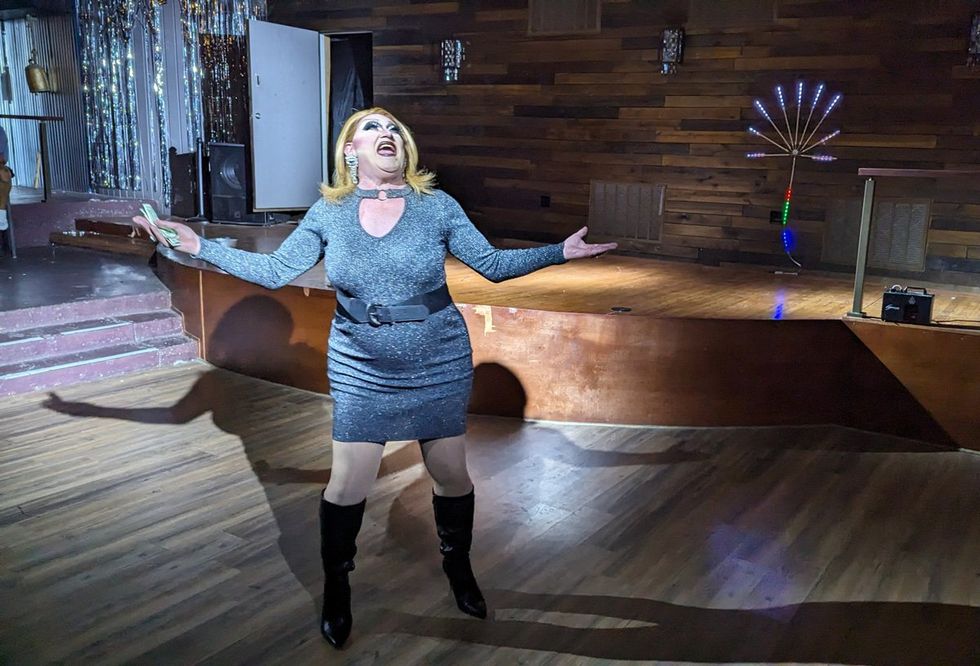
It is a little surprising there are people out tonight at all, considering that only a couple of hours earlier we were all crushed together at an emotional vigil for Nex Benedict, a 16-year-old who died the day after being beaten in the bathroom of their high school. The precise details of Nex’s death as reported are still unclear, but they are beside the point for the grieving crowd, which spilled out from the vigil venue into the parking lot and against traffic on a busy street.
I will admit this. Standing just at the street on the outskirts of the crowd, not wanting to intrude on these heartbroken locals, I winced each time a car drove by just behind me. Every passing vehicle produced a tingle up my spine. Events like a memorial for a non-binary kid are magnets for violence. You never know.
But here, at the County Line nightclub, the vigil has ended and the crowd looks to the entertainers to soothe their hearts and lift their emotional exhaustion. It’s no wonder, I realize now, that each dollar bill comes with a bow of gratitude.
Watching the show beside me is Lance Preston, the Executive Director of the Rainbow Youth Project USA, which operates a crisis hotline and counseling for LGBTQ youth being bullied or suffering from depression or thoughts of suicide.
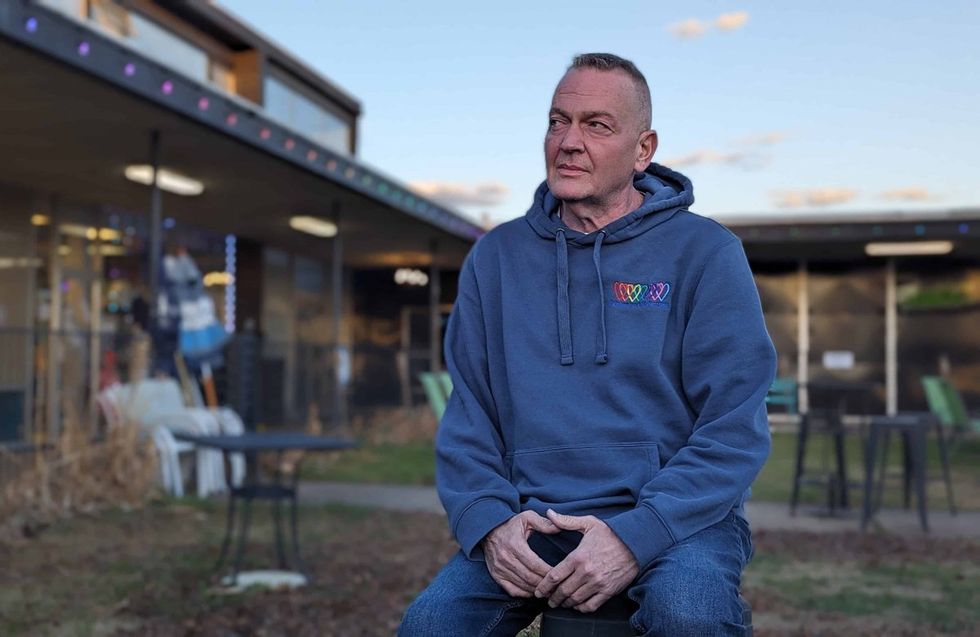
Lance has got to be more exhausted than he lets on. He has conducted more than 60 media interviews in the last few days on nearly every network, each one of them beseeching viewers to practice simple empathy toward queer kids, and for a safe environment at school. His efforts haven’t prevented the far-right activists online from having a field day, excoriating him with comments too vile to repeat.
Lance and I step outside for some fresh air, and he tells me with a shocking casualness about his experience with bomb threats and how helpful the FBI has been. The federal agency regularly informs him of the threat level for nearly every public event Lance attends. They monitor the dark corners of the internet for chatter about potential violence and give Lance a threat rating. The vigil earlier had received a relatively low threat rating. Lance went.
The Rainbow Youth Project crisis hotline gets more than its share of hateful calls and messages. “They’re annoying, mostly,” Lance tells me. “But every prank call means time being taken away from a child who needs help. That’s what bothers me the most.”
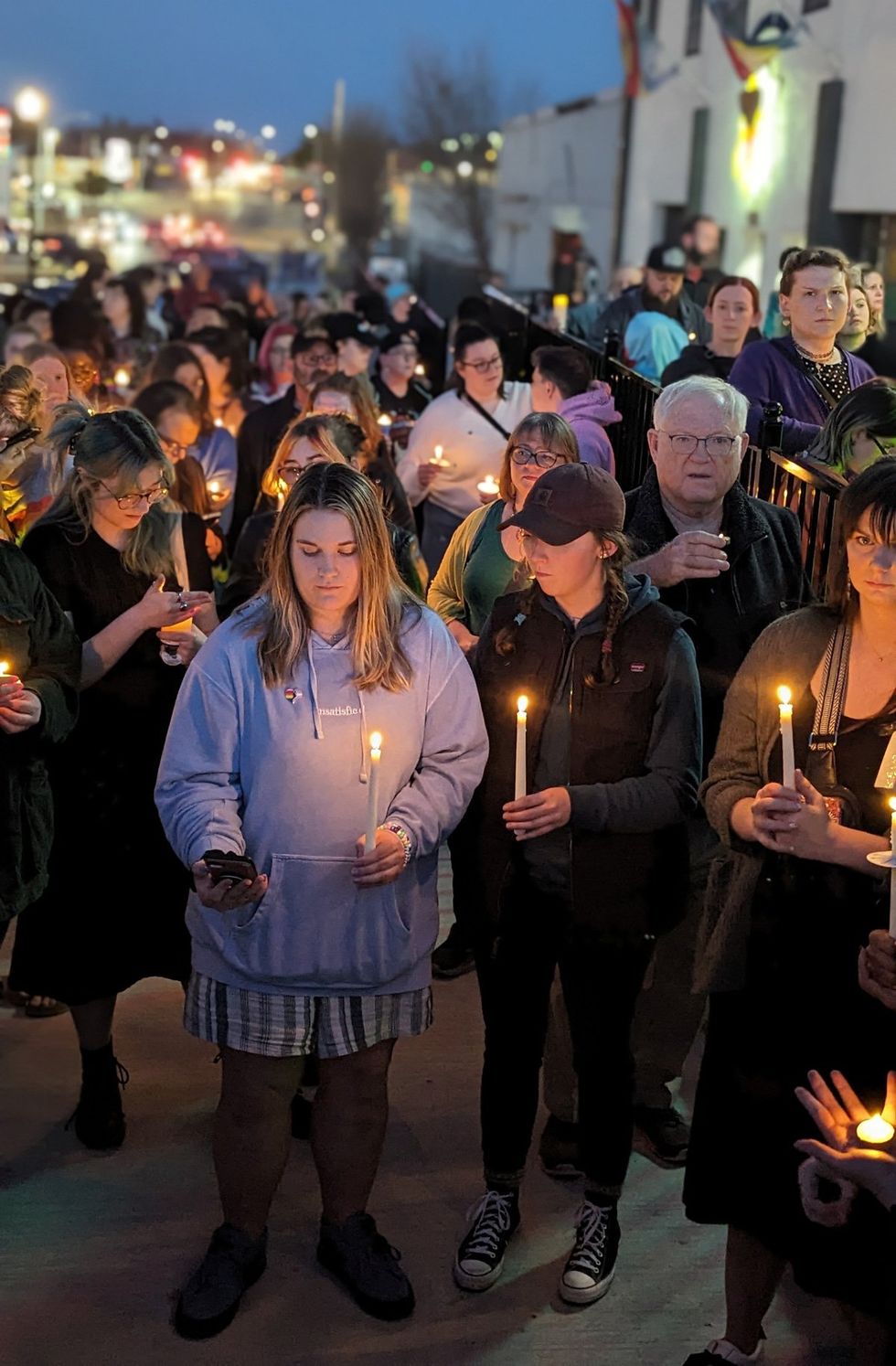
Rainbow Youth Project is centered in Indianapolis but Lance has been in Oklahoma on a regular basis lately. The state has sometimes lurched ahead of Florida and California in the number of calls to the crisis line. Since Nex died, calls from Oklahoma kids in crisis have ticked up even further.
Tayton Barton steps outside to join us and I grab a hug. She is a trans woman and a new transplant to Oklahoma City. She speaks softly but I know better. Her TikTok channel is pure fire, calling out ignorance and willful misinformation about the lives and rights of trans people. She is one of the few online personalities who will stand up to some of the more hateful far-right voices on social media.
Tayton’s mother is at her side, as she has been each time I have seen Tayton throughout my visit. When an LGBTQ child finds an ally in their own family, they cling to them tightly. Tayton’s mother is her biggest fan, even if Tayton’s online audience is growing by the day.
Walking back inside, I catch Michael Maus and Robert Lacy-Maus with their arms around each other. The couple, both long-term HIV/AIDS survivors and together for decades, have never lost their newlywed sheen. Michael is a community icon here, lauded for his tireless HIV work of more than twenty years, while Robert is a supportive husband with a flirtatious twinkle usually tossed in Michael’s direction.
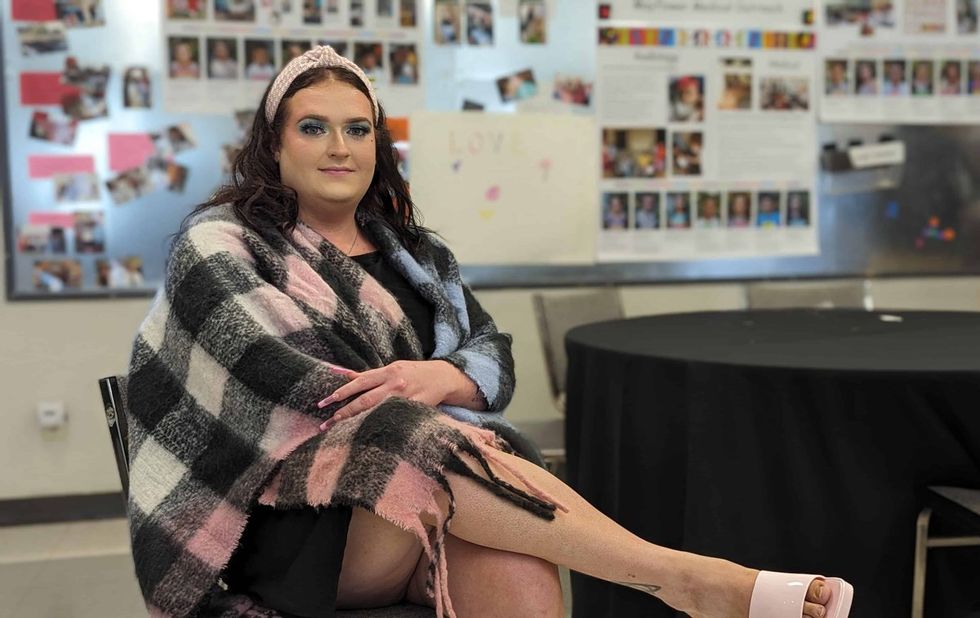
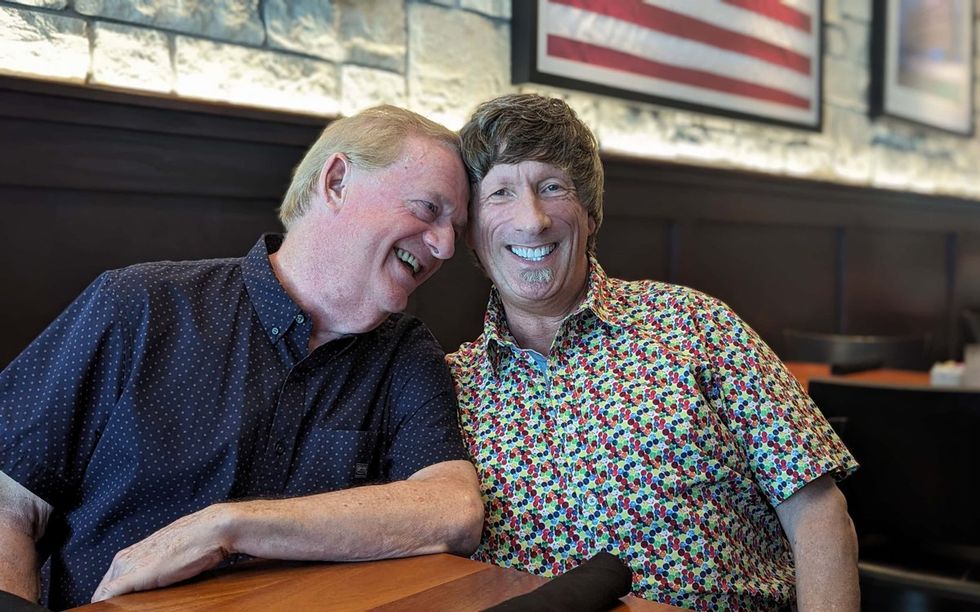
For more than 20 years, Michael has hosted a regular Wednesday afternoon get together at Expressions Community Center, where local HIV advocates from a variety of agencies come to stuff condoms, lube, and testing information into safer sex packets. Michael’s enthusiasm – and the fact the event provides local HIV leaders a chance to trade advice, gossip and resources – has made the “condom brigade” a must on everyone’s calendar.
I see Teegan Mauter and Christopher Sederburg, leaders of the Trans Action Committee of the Rainbow Youth Project, sitting to one side of the club nursing their sodas. They are in town with Lance to help support the community during this difficult time. I pull up a chair to ask them something that has been on my mind.
How do they make it through the day, as trans men visiting here, in such a hostile environment? Only the day before, an Oklahoma state senator called the LGBTQ community “filth.” The death of a teenage non-binary person must have hit them especially hard.
“As awful as it is, we can’t look at this as an ending,” Christopher tells me about Nex. “It’s the beginning. This can change things.”
“We know what we’ve been through,” Teegan adds. “And we know how much these kids need our support.”
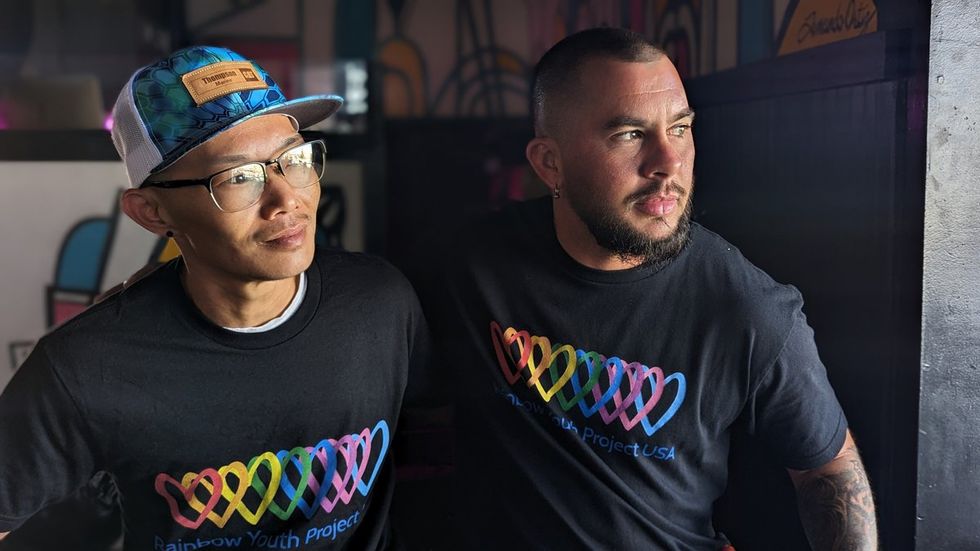
Teegan and Christopher are young, with the hopefulness youth provides, yet they answered me with the look of men who are intimately familiar with life’s cruelties. It was a look that broke my heart.
Across the club I spot Mary Arbuckle reaching out with a dollar bill for an entertainer doing a Reba McEntire number. Mary just retired as the director of Other Options, which provides a food pantry and other resources to people who need it, including those affected by HIV/AIDS. She is an unstoppable powerhouse in this community, a trait she shares with her late mother, Cookie Arbuckle, who founded Other Options in 1988.
Mary had organized my book event the previous evening but had stayed near the back of the room during the readings. The essays about the dark years of the AIDS crisis kept tears in her eyes.
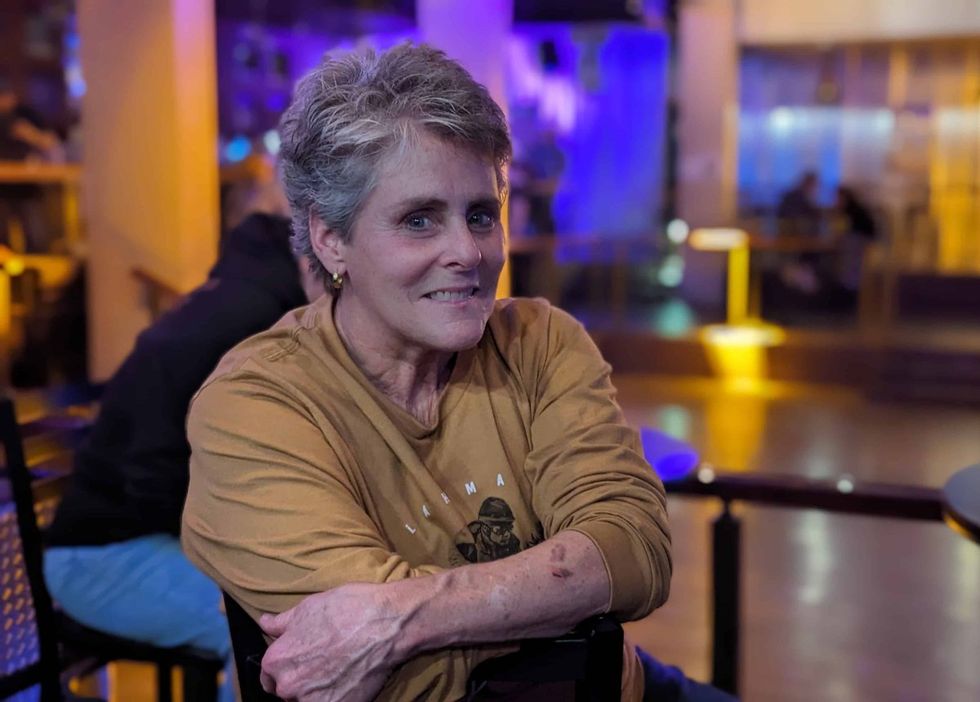
These Oklahoma City advocates made indelible impressions. They redefined for me the meaning of an overused word. Inspiring. And, because we have learned to lift up the names of those we have lost to AIDS, or suicide, or hatred, I feel compelled to also chronicle the names of these living, remarkable people who have poured their hearts and livelihoods into saving the very future of Oklahoma.
Meeting these folks is due to the fact I have the good fortune of knowing Robin Dorner, the editor of The Gayly, Oklahoma’s LGBTQ newspaper. Her journalism is her activism. Robin, a sparkling woman who is quick to remark she’s “not straight straight,” was my gateway to the queer advocates of Oklahoma.
The show is winding down. It’s time to get back to my hotel for some rest. There’s a drag brunch tomorrow and my new Oklahoma friends will be taking me there. I can’t wait to be in their company again.
Wild horses couldn’t drag me away.
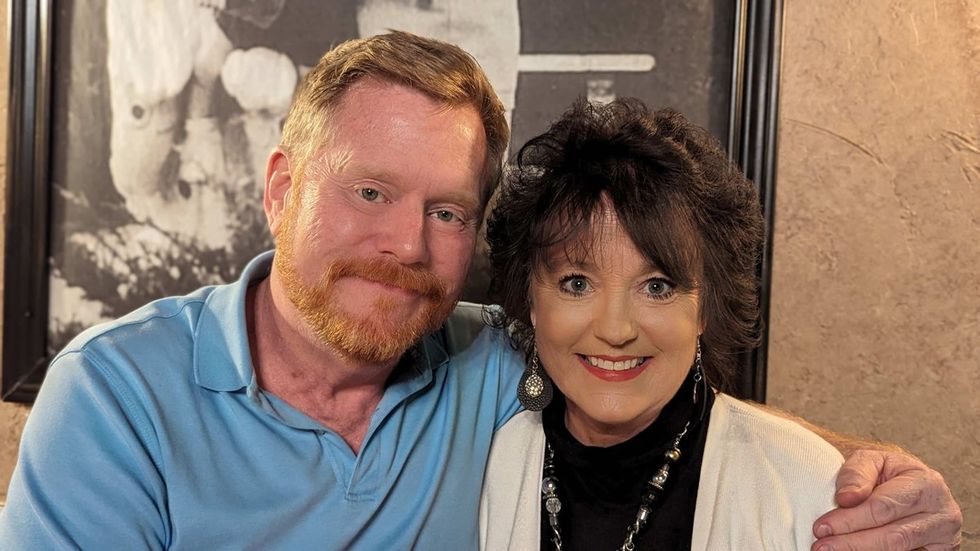
This article originally published at author and activist Mark S. King's blog, My Fabulous Disease. Mark's new memoir, a collection of essays spanning four decades, My Fabulous Disease: Chronicles of a Gay Survivor, is now available at most major booksellers.















Charlie Kirk DID say stoning gay people was the 'perfect law' — and these other heinous quotes
These are some of his worst comments about LGBTQ+ people made by Charlie Kirk.